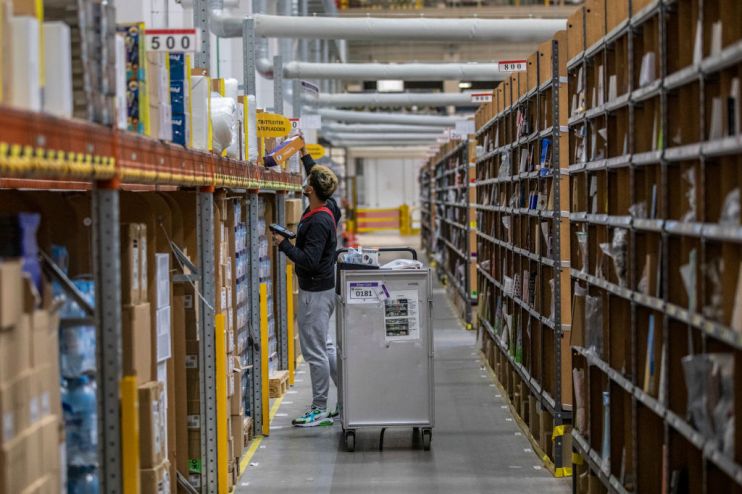Amazon customers face higher prices for products as retail giant brings in fuel and inflation levy

Consumers could be hit with higher prices for Amazon products, after the retail giant announced it will impose a new levy on sellers to offset spiralling inflation and record fuel prices.
Amazon has announced from next month its UK operation would be adding a “fuel and inflation surcharge” of 4.3 per cent to fulfilment fees for marketplace sellers.
The extra charge applies to vendors that use the ‘Fulfilment by Amazon’ (FBA) service to store stock in its warehouses and utilise its supply chain and shipping network, with price hikes likely to be passed on to customers.
Andy Jassy, Amazon’s global chief executive, revealed the new charges would be brought into multiple markets, as a response to the impact of the pandemic and the war in Ukraine.
He said: “At a certain point, you can’t keep absorbing all those costs and run a business that’s economic.”

Amazon’s profits trebled during the pandemic, with online retail surging as high street stores were forced to close.
However, fuel prices have soared to record levels during the same time period – peaking at 167.3p per litre for unleaded petrol.
Forecourt prices remain historically elevated, while the Bank of England has warned of the possibly of a recession with inflation spiking to seven per cent this year.
The charge starts on May 12, the same day as in Germany, France, Italy and Spain, although it may not be permanent.
In a letter to FBA users in the UK, Amazon said: “It’s still unclear if these inflationary costs will go up or down or for how long they will persist. Rather than a permanent fee change, we will be employing a fuel and inflation surcharge for the first time.”
In the US, delivery groups such as UPS and FedEx have already imposed fuel surcharges.
When approached for comment, Amazon confirmed the surcharge to City A.M.
The retail giant explained the 4.3 per cent levy only applies only to the fulfilment fees, and is not a fee on total costs for selling partners.
Domestically, this will result in an average increase of 10 pence per unit.
Writing to UK sellers, Amazon said: “In 2022, we expected a return to normalcy as COVID-19 restrictions around the world eased, but fuel prices and inflation have presented further challenges. It’s still unclear if these inflationary costs will go up or down, or for how long they will persist. Rather than a permanent fee change, we will be employing a fuel and inflation surcharge for the first time – a mechanism broadly used across supply chain providers.